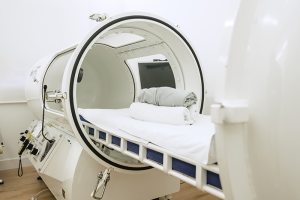Let’s bring our data ‘A game’
In June, I wrote about the American Society for Health Care Engineering (ASHE) Annual Conference & Technical Exhibition, which I believe embodies the core of cutting-edge education and strong community within our profession. Accessible, up-to-date education and a supportive professional network are vital to maintaining our role as indispensable contributors to patient care and ensuring a rewarding and valuable career for emerging health care facilities professionals.
Another critical component of our success and progress is data collection and sharing. Geoffrey Moore stated, “Without ‘big data,’ you are blind and deaf and in the middle of a freeway.” The significance of proper data collection, analyzation, reporting and utilization in health care facilities management is increasing daily for individual organizations and from a regulatory perspective.
Establishing data baselines, maintaining existing and incoming data, and leveraging metrics are instrumental to making productive and informed decisions for an individual facility. Instituting ourselves as the owners and interpreters of our facilities’ metrics will encourage leadership to partner with us when making decisions that will affect both the physical well-being of our facilities and their occupants as well as the organization’s financial success.
We have the role and obligation to keep not only our own teams informed by data collection processes and policies, but the collective profession as well. And if each of us focuses on developing and engaging diverse professional networks that share accurately sourced data, we can enhance our own education, contribute to the education of other teams worldwide, and provide a better healing environment for our patients and caregivers.
In addition to using data collection, analysis and reporting to inform and support our internal and collective decision-making, it is our responsibility to help standards organizations and regulators submit appropriate and achievable regulations that are scientifically valid through — you guessed it — meaningful and accurate data. This month’s Health Facilities Management cover story discusses current trends in compliance and advocacy, many if not all of which require quality data for accuracy and success.
What data collection initiatives can you spearhead at your health care organization?




